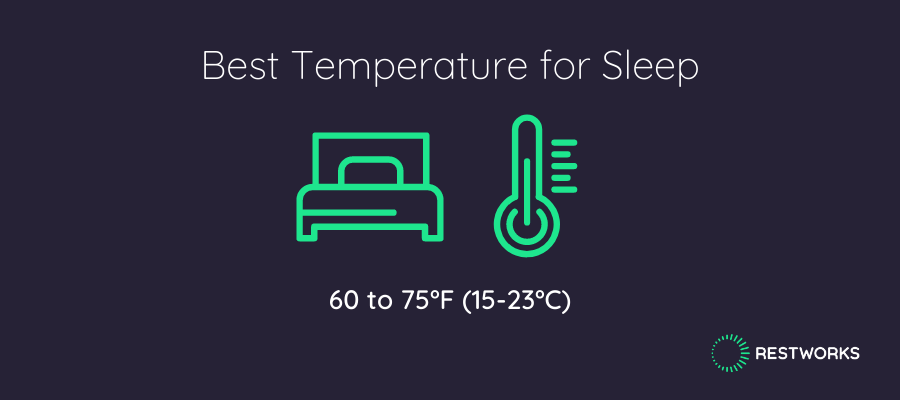What Temperature Should a Bedroom be?
Temperature affect sleep, but what temperature should a bedroom be? - As we sleep, our core temperature drops while our hands and feet warm up. Finding the ideal bedroom temperature is critical to falling asleep and getting the most out of your nighttime hours in bed.
Find the ideal room temperature for sleeping
Does your body temperature tend to run warm or cold? Studies have shown that a cooler room will help you fall asleep faster and achieve better quality sleep than a warm room. The best temperature range for your bedroom at night is between 60 to 75ºF (15-23ºC).
If you find yourself repeatedly waking due to being too cold or too warm, check the temperature in your bedroom and experiment with how cool the room should be for your optimal sleep.
In addition to the room temperature, consider other factors that may affect your temperature while you sleep:
- If you tend to run warm, are you using high quality, breathable cotton sheets to keep you cool?
- If you are on the other end of the temperature spectrum and always feel cold, perhaps a set of soft flannel sheets is a better option.
- The thickness of your duvet also has a great deal to say. Many people prefer to have a light duvet for summer, and a thicker one for winter.
- You should also consider what pajamas you wear to bed. As cozy as that flannel set from Christmas may be, if you feel too warm at night, you may not be getting the best sleep.
- It’s best to avoid air conditioning if possible. This can be done by closing curtains and windows during the day so your room don’t get too hot.
What happens to our body temperature during sleep?
Our body temperatures slightly rise and dip throughout the day. In the evening, as we fall asleep, our core temperature drops, which triggers a release of sleep-inducing melatonin.
It reaches the lowest point around 5 am, before melatonin levels decrease and your body temperature begins to climb again. If your bedroom is a few degrees too warm, it may hinder your body’s ability to wind down.
If your bedroom is cool, your bedding and pajamas are comfortable and you still have trouble sleeping, try wearing a pair of socks to bed. Keeping your feet warm can help your blood vessels dilate faster, bringing your temperature down to the right range for sleep.
Read also: Restworks’ Power Nap Guide
Why is temperature important for sleep?
Since how the drop in temperature at night is what triggers melatonin (‘the sleep hormone’) keeping the room temperature correspondently cool can have a significant impact on your sleep quality.
A bedroom that is too hot can lead to sleeplessness and resulting daytime fatigue. Over time, sleeplessness can lead to health consequences such as increased risk of heart disease and higher risk of burnout.


